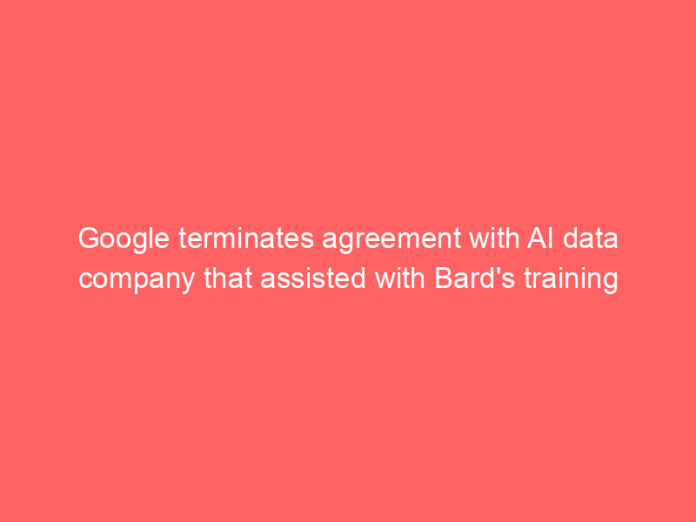
Even as the race to develop generative AI tools intensifies, Google terminated its contract with Appen, an Australian data startup engaged in training its massive language model AI capabilities used in Bard, Search, and other products. A Google representative, Courtenay Mencini, sent a statement to The Verge stating, “We decided to terminate the contract as part of our ongoing effort to evaluate and adjust many of our supplier partnerships across Alphabet to ensure our vendor operations are as efficient as possible.”
Declaring in a filing that it “had no prior knowledge of Google’s decision to terminate the contract,” Appen informed the Australian Securities Exchange.
Human workers are the unsung heroes of the industry, frequently earning lesser wages and going unnoticed, and doing many of the more repulsive aspects of AI training at companies like Appen. Contractors at Appen assist in grading the quality of data and responses from AI models. Last year, Fast Company reported that certain Appen workers who are members of the Alphabet Workers Union have been requesting that their pay be raised from $10 to $15 per hour. The union succeeded in raising wages, but the total amount was below what was desired. Following that, many of these employees were let go, with Appen claiming economic circumstances.
According to CNBC, Appen has also assisted in the training of AI models for Amazon, Microsoft, and Meta. The company stated that its revenue has been significantly impacted by its cooperation with Google in its ASX report. In the fiscal year 2023, Appen earned $82.8 million from Google alone. Last year, it brought in $273 million.
Mencini continued, saying that in order to make the move “as smooth as possible,” Google and Appen are collaborating closely.
Workers at Accenture, a different Google contractor, unanimously decided to join the Alphabet Workers Union, which is the union that represents Google contractors, in November of last year after the company refused to respond to “obscene, graphic, and offensive prompts” for the then-unreleased Bard chatbot.
Furthermore, it affects more than simply Google. Sama, a data-labeling company, and its customer Meta were sued by content moderators in Kenya who were paid $2.20 per hour to watch obscene photos and videos.














































